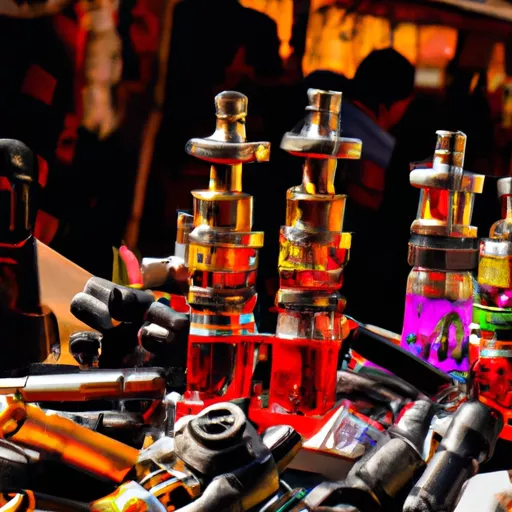
Vaping, the act of inhaling and exhaling the vapor produced by an electronic cigarette (e-cigarette), has gained immense popularity in recent years. India, with its large population and increasing use of technology, has also seen a significant rise in the sale and use of vapes. In this article, I will discuss the current state of vaping in India, its legal status, and the availability of vapes in the market.
The use of vapes in India has been steadily increasing, especially among the youth. With the growing awareness about the harmful effects of traditional cigarettes, many people have turned to vaping as a safer alternative. Vapes are seen as a way to satisfy nicotine cravings without the harmful chemicals found in regular cigarettes. They come in a variety of flavors and styles, making them popular among people of all ages.
One of the main reasons for the popularity of vapes in India is the wide availability of e-cigarettes and e-liquids in the market. Online platforms such as Vapes in India have made it easy and convenient for people to purchase vapes and vape-related products. These platforms offer a wide range of options from different brands, including international ones, thus providing consumers with more choices and competitive prices.
However, the sale and use of vapes in India have been met with controversy and legal challenges. In 2019, the Indian government issued an ordinance banning the production, import, distribution, and sale of e-cigarettes. The ordinance cited health concerns and the need to protect young people from the potential harms of vaping. This move was met with criticism from vapers and harm reduction advocates who argued that the ban would lead to a black market for vapes and ultimately harm public health.
Despite the ban, vapes are still widely available in the Indian market. Many retailers have found ways to continue selling vapes by labeling them as “personal aromatherapy devices” or by selling the devices and e-liquids separately. The ban has also not deterred online sales, as websites like Vapes in India continue to operate and deliver products discreetly.
The legal status of vapes in India remains in a grey area. The Indian government has not officially banned the consumption of vapes, making it legal to use them. However, the ban on their production and sale makes it difficult for vapers to access devices and products. Many vapers have resorted to importing their supplies from other countries or turning to homemade e-liquids.
One major concern surrounding the use of vapes is the lack of regulation and safety standards. With the ban on the production and import of vapes, there is no official body to regulate the quality of products or ensure consumer safety. This has led to instances of poor quality or counterfeit products, posing a risk to vapers’ health. The use of homemade e-liquids, which may not adhere to safety standards, also raises concerns.
In addition to the legal and safety issues, there is another facet to vaping in India – the social stigma attached to it. Many people still view vapers as smokers, associating them with the harmful effects of traditional cigarettes. This can lead to discrimination and judgment towards vapers, making it difficult for them to openly use vapes in public spaces.
Despite these challenges, the vaping community in India continues to grow, with many organizations and online communities advocating for the legalization of vapes. They argue that vapes are a harm reduction tool and could help people quit smoking. They also emphasize the need for regulation and standards to ensure the safety of vapers and promote responsible use of vapes.
In conclusion, vapes have gained a significant presence in the Indian market, with their popularity among smokers and young people. While there are legal and safety concerns surrounding their use, vapers in India continue to find ways to access and use vapes. It is clear that there is a need for regulation and clear guidelines on the use of vapes in India to ensure the safety and well-being of vapers. With the ongoing debates and advocacy efforts, it is hopeful that the Indian government will reconsider its stance on vaping and come up with a comprehensive regulatory framework for this growing industry.